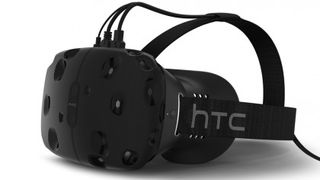Console gaming is still dead - and the PC is only getting better
Six months later, is the PC still the home of the next generation?
Promising project
This is one area where the Playstation 4 at least stands to make some real ground. Sony's Project Morpheus has been getting great press, but its biggest advantage is that it'll be the only game in town for console VR next year. On PC, we already have an incoming clash between Oculus, HTC/Valve, and potentially Microsoft with its augmented reality approach, HoloLens.
Competition is great for pushing forward technology, but the different design philosophies and experiences provided by all these devices (Oculus for instance is focused on sit-down experiences, while Valve/HTC are trumpeting the ability to walk around in their Vive) could easily lead to expensive confusion in the market. It wouldn't take much disappointment to torpedo the whole thing.
That said, on PC the basic technology can stick around as long as people are interested in it, and developers are willing to support it. On Playstation 4 it could easily end up being dropped as quickly as the Xbox One's love affair with Kinect, while the nature of the console market means that generation-level updates would likely have to be saved for the next console cycle. The PC is a much better place for early adopters to help work out the inevitable issues and for everyone else to jump in once the teething problems are fixed.
For the developers
PC is also increasingly the best platform for developers to work on. This GDC saw Unity 5, Unreal Engine 4 and Valve's upcoming Source 2 engine made free to at least a point, with tools like Gamemaker Studio and interactive fiction creator Twine having largely shaken off the snobbery that greeted them a couple of years ago. Some will still sniff at that, yes, but unless they've personally made better games than Gunpoint, Spelunky and Hotline Miami, there's no reason to respond with anything but a Kleenex for their nasty cold.
Both Sony and Microsoft meanwhile have a vested interest in keeping things limited, even when it's in such self-destructive ways as Microsoft's 'parity clause' - a petulant (if occasionally flexible) refusal to publish indie games on Xbox One that have previously appeared elsewhere, which might give the shocking impression that the world doesn't revolve around its shop. Sony meanwhile has no such silly rule, but of course still controls the Playstation's only shop and indies wanting to get onto it still have to jump through hoops to do so.
The result is that while you can get indie games on consoles, their spiritual home remains on PC, where they can be sold, bundled, given away and promoted, or take advantage of innovative ways of selling games like Early Access that neither console has shown any interest in risking touching with the proverbial barge-pole. Nor has either even half-heartedly embraced the joys of modding, despite the huge success of games like Skyrim and Minecraft and services like Valve's one-click Steam Workshop for making games better.
All things considered
So, what does that all that give us? Unless you're a player that only plays a couple of exclusive games like Halo, the PC wins hands down. Even a mediocre machine comprehensively canes the competition in scope. Any additional cost is more than covered by the cheap price of games once inside (ignoring the fact that you don't need a dedicated games PC to play great PC games) and, while it's possible to spend a fortune squeezing every pixel and frame out of a rig, doing so absolutely isn't required.
Get daily insight, inspiration and deals in your inbox
Get the hottest deals available in your inbox plus news, reviews, opinion, analysis and more from the TechRadar team.

If you do have an eye on the future though, it's where the most exciting stuff is happening, from VR to cool peripherals to 4K graphics. Neither console is ready for that right now, and even if they were, there's little reason to upgrade a whole TV just for that. A desktop monitor however is another story, especially since you can lie to yourself that it's really for work.
The one big advantage consoles do currently have? It's unquestionably more more comfortable to play games on the sofa than at a desk, save for a few specific genres that demand a mouse and keyboard. By the end of the year though, even that problem will have gone away, with Steam Link boxes available for the cost of a new game.
If anything, what's surprising about this generation is what an easy fight it is. Historically, new consoles start by knocking everything else into a cocked hat, with PC owners having to wait a year or two for first parity, and then superiority. This time though, it's been less a battle of technologies than ecosystems, and one where the PC holds all the trump cards.
Game catalogues, prices, ongoing system potential… the decision to be a PC gamer may not always feel like the easiest or most stylish, but it's absolutely the best one. A year and a half after release, neither Xbox One nor Playstation 4 even have a real answer to it, never mind a good one.
